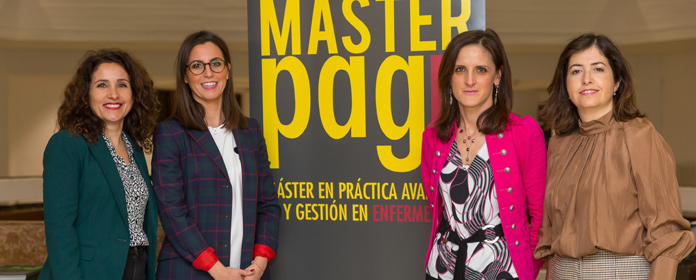"We are 50% of healthcare professionals and we have a role core topic in society's access to healthcare."
Three nurses claim at the University of Navarra to make this profession more visible in the International Year of the Nurse

PHOTO: Manuel Castells
Nearly a hundred professionals attended a roundtable organized by the School of Nursing of the University of Navarra and framed in the International Year of Nursing. "Nurses make up 50% of healthcare professionals. We have a role core topic in society's access to healthcare. And the WHO, with the designation of this international year, shows its interest in the development of the profession," explained María Carrión, nurse of internship Advanced in the Clínica Universidad de Navarra.
With the degree scroll "New nursing roles", the goal of the workshop was to address the reality of the profession from three profiles: the internship Advanced, the management and the research. Nuria Esandi, professor and researcher at School of Nursing, and María José Pizarro, supervising nurse at OSI Donostialdea, also participated.
"The social perception of nursing changes a lot from one country to another. In Spain, all nurses have been university graduates for 40 years. This is not the case in all countries," explained María Carrión. "Little by little, progress has been made in society's view of the nurse, especially in primary care, as a qualified professional," she said.
"I am from agreement with the invisibility of Nursing care," admitted Nuria Esandi. "When this care is missing everyone recognizes it. That's why I think we have to make the invisible visible. And that is up to us nurses," she said. "The International Year of Nursing is an occasion to make the profession visible, to make people aware of the impact of our work", she stressed.
training and patient-centerednessAccording to this expert, Nursing has changed a lot. "There is now more specialization and more training with programs of study from Master's Degree and access to doctorate. This has helped to reduce the gap between what our work consists of and how it is perceived," she said. For María José Pizarro, this training is indispensable for exercising a management role well: "Many times we don't have it when we take on a position supervisory or management role. These are positions with a lot of responsibility and the role of the supervising nurse is not always recognized". In the same sense, María Carrión referred to training as a financial aid for the nurse to gain confidence and "be able to occupy her position within interdisciplinary teams".
An important aspect on which all three agreed was that passion for the patient is what drives every nursing professional. "I focused my degree program to the advanced internship because it involves a direct contact with the patient. It allowed me to combine leadership, which I had already exercised in some positions at management, with care internship ," explained María Carrión. For Professor Esandi, this same patient-centeredness is what guide her work: "The research is not unrelated to the clinical internship : it contributes to the patient's attendance ". Finally, María José Pizarro pointed out that the role of management implies contemplating your environment and detecting areas for improvement; always in order to provide better care for the patient.
